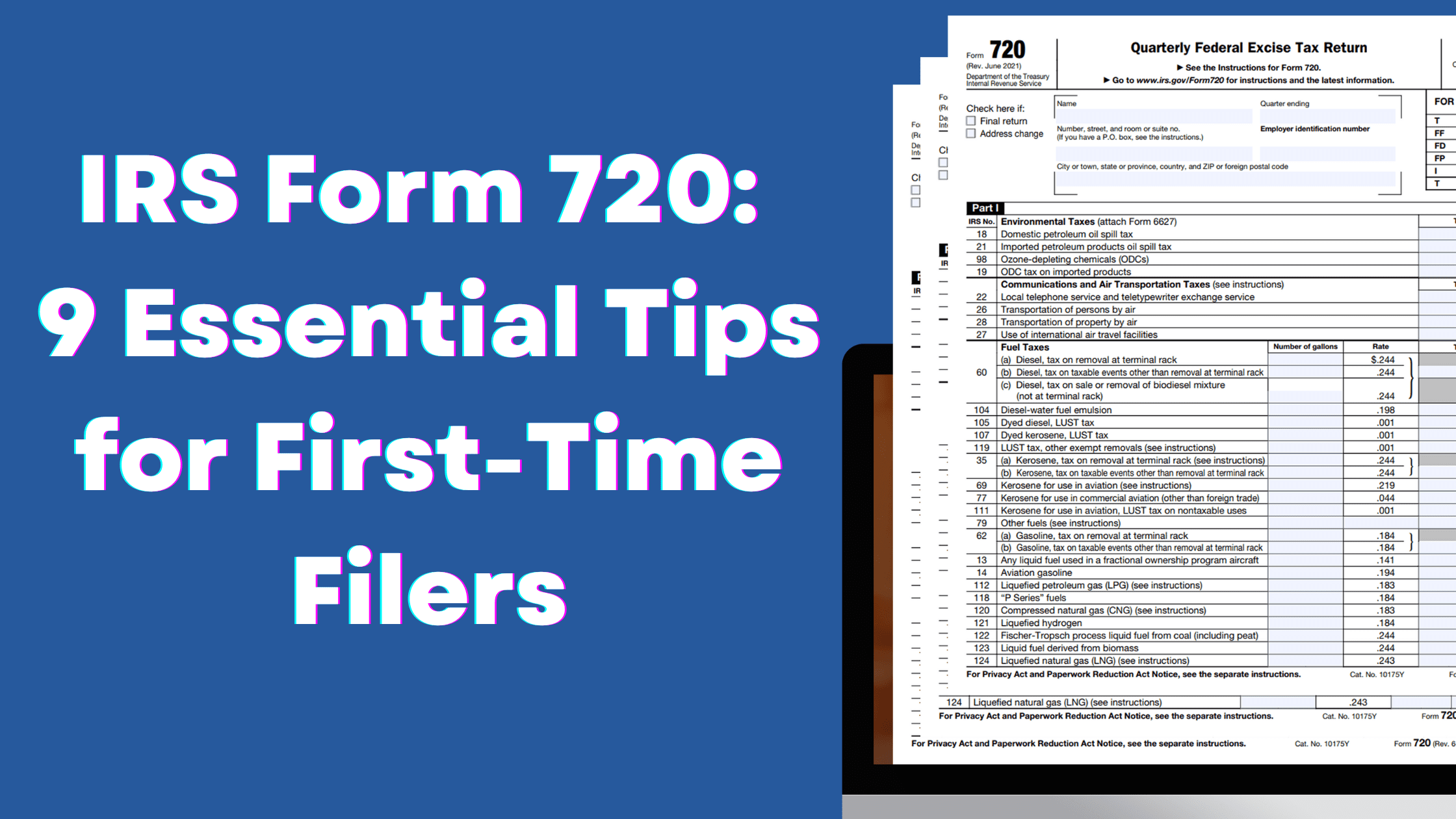
Form 720 Filing 101: First-Timer Success Guide
Starting your journey as a first-time filer for IRS Form 720 can be a bit overwhelming, but fear not! This comprehensive guide is designed to walk you through the process, offering valuable tips to ensure a smooth and successful submission of your 720 Form and avoid penalty.
IRS Form 720: 9 Essential Tips for First-Time Filers
I. Understanding Form 720 Basics
Before diving into the specifics, let's establish a foundation. Form 720, the Quarterly Federal Excise Tax Return, is a crucial document for businesses dealing with excise taxes. It consists of several sections, each addressing specific types of excise taxes, and understanding its basics is key.
II. Gathering Essential Information
To kickstart your filing process, assemble all the necessary information. This includes details about your business, such as the Employer Identification Number (EIN), business structure, and contact information. Additionally, collect data related to excise taxes specific to your industry.
III. Choosing the Right Filing Method
Traditionally, businesses filed 720 tax form on paper. However, the IRS strongly encourages electronic filing for its efficiency and accuracy. Consider e-filing through IRS-authorized providers like Simple720. Our Excise Tax software simplifies the process and reduces the likelihood of errors.
IV. Common Pitfalls to Avoid
First-time filers often encounter common pitfalls. These may include inaccuracies in reporting, missing deadlines, or not utilizing available deductions. Be aware of these potential pitfalls to navigate the process smoothly.
Check out this blog on 12 Form 720 Filing Mistakes for Smooth Tax Compliance for better clarity.
V. Utilizing IRS Resources
The IRS provides an array of resources to assist first-time filers. Explore the IRS official website for guides, instructions, FAQs, and contact information for assistance. Familiarize yourself with these resources to access valuable information throughout your filing journey.
VI. Form 720 due date Awareness
Meeting deadlines is crucial to avoid penalties. Form 720 follows a quarterly schedule, with deadlines falling at the end of April, July, October, and January. Mark these 720 due dates on your calendar and set reminders to ensure timely submissions.
VII. Record-Keeping Best Practices
Efficient record-keeping is the backbone of successful tax filings. Implement a systematic approach to organize and maintain records throughout the tax year. This practice not only facilitates accurate filings but also simplifies future audits.
VIII. Tips for Navigating Complexities
While Form 720 may seem straightforward, certain complexities can arise. Stay informed about industry-specific nuances, seek clarification when needed, and don't hesitate to consult IRS Authorized e-file provider like Simple 720.
IX. Review and Verification Steps
Before submitting your Form 720, conduct a thorough review. Check for accuracy in all reported information, ensuring there are no errors or omissions. Verification at this stage minimizes the risk of potential issues down the line.
Closing Thoughts:
By understanding the basics, gathering essential information, utilizing resources, and adopting best practices, you've laid a strong foundation for future submissions.
For ongoing support and additional tips on excise tax filings, follow us for updates and expert insights.
Remember, you're not alone on this journey—we're here to help you navigate the world of Form 720 and ensure continued success in your tax obligations.
Why still waiting? File your form 720 with us today
File IRS Form 720 Online
